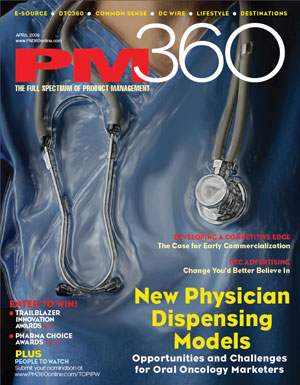By Bud Bilanich | PM360
Published: April 2009
Bud Bilanich, The Common Sense Guy, is a management consultant, keynote speaker, executive coach, author, and blogger (www.successcommonsense.com). He can be reached at This email address is being protected from spambots. You need JavaScript enabled to view it..
 I’d like to take some time this month to Talk about the idea of WE. I am a member of the Creating WE Institute, a group of people who have come together to develop new forms of engagement and innovation in the workplace. The Institute is the brainchild of Judith Glaser, author of the bestseller Creating WE.
I’d like to take some time this month to Talk about the idea of WE. I am a member of the Creating WE Institute, a group of people who have come together to develop new forms of engagement and innovation in the workplace. The Institute is the brainchild of Judith Glaser, author of the bestseller Creating WE.
I had a conversation with Judith the other day. I asked for her thoughts on “WE-centric” thinking. Here is what she had to say: “WE-centric thinking can change the very nature of leadership, culture, brands, businesses and other organizations. The basic idea is that we are all connected and that through a WE-centric, rather than a traditional I-centric approach, our collective wisdom grows and evolves, creating stronger solutions and mutual shared respect for one another’s unique contributions.”
What does this have to do with product management? Plenty. Product managers are at the center of a complex web. You need to work with your R&D colleagues to make sure that you get the indications that will help you effectively market your product. You need to work with your sales colleagues, providing them with detail aids and other marketing material that will enable them to make the most of the precious time they get with physicians. You need to work with your manufacturing and logistics colleagues to make sure that they can deliver your products in a timely fashion. You need to work with agency reps to plan and execute dynamic advertising campaigns.
The Beginning
You can make the most of these relationships by developing a WE-centric, not I-centric attitude. “Great,” you say. “How do I do that?”
Here’s how.
In order to Create WE, you have to do three things:
1) Believe WE
To “believe WE” you need to change your attitudes and beliefs about organizations and how you are supposed to behave in an organization. You can begin to believe WE by breaking down hierarchical relationships. Adopt the view that every party in an exchange brings something valuable to the exchange, regardless of his/her position in the hierarchy. Shift your focus to one in which you view others in your organization as friends, not foes and from “my success” to “our success.” As you begin to believe WE, you’ll work together to establish mutual accountability, shared responsibility and mutually agreed upon and beneficial results.
2) Learn WE
To “learn WE” you need to adopt new habits and behaviors, learn new skills and unlearn old ones. You need to create an environment in which people feel free to speak up, challenge the status quo and create a healthy culture. You need to break out of your comfort zone and be willing to forgo the comfort and stability of the past in order to embrace opportunities for the future. You need to trust others, open up to them to help them open up to you. Without trust, there can be no WE, only I. You can build trust by your willingness to enter into conversations that release you and others from your history and memories. Stories will help you accelerate learning WE. Stories shape the way we view the world—individually and collectively. Instead of telling I stories, tell WE stories. Use stories to transform silo thinking into pride and enterprise-wide thinking.
3) Be WE
To “be WE” you need to express WE-consciousness through your actions. You need to work in concert with others, showing them your appreciation for their hard work and contributions. You need to sustain WE by working for the best possible outcomes for everyone. You need to continually focus on creating together, to learn to grow and nourish the people around you. As a pharma professional you must depend on others for your success. Switching your perspective from “I-centric” to “WE-centric” is a great way to build the mutually beneficial relationships that will help you succeed. Creating WE is available in local bookstores and online (www.creatingweinstitute.com). Check it out and begin reaping the rewards of WE thinking.








